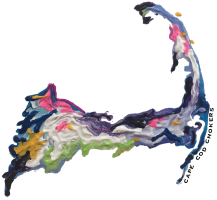
What is a lifestyle brand example?
Share
What is a lifestyle brand example?
An ideology developed by a brand is a lifestyle brand. By evoking an emotional response in its customers and inspiring a desire to be a part of a particular group or brand, an organization can establish a lifestyle brand. If a consumer publicly associates themselves with a particular lifestyle brand, such as by using a brand on social media, they will feel as though their identity will be strengthened. A few successful examples of lifestyle brands include LaCroix, Redbull, Nike, and Airstream.
Related: The Dangers of Fast Fashion

Lifestyle Brand Explained
A lifestyle brand is a company that, for marketing purposes, embodies the ideals, passions, hobbies, attitudes, or beliefs of a particular group or culture. In order to make their products contribute to the definition of the consumer's way of life, lifestyle brands work to inspire, counsel, and motivate people. As a result, they are closely linked to the advertising and other promotions used to increase their target market's awareness of them.
Brands should be responsible for how they interact with their customers. Brands that are willing to put themselves out there and take a stand for what they believe in are brands that people are drawn to. As such, they are closely associated with the advertising and other promotions used to gain mind share in their target market.

What are the elements of a lifestyle brand?
It is no longer sufficient to merely produce a high-quality good or service to establish your brand; rather, you must consistently and genuinely enter into people's lives in order to truly stand out from the competition.
Values that align with customers’ values.
By values, we don’t necessarily mean moral values, though that is certainly the case for many of them. These values could also be personal values or interests, such as creativity, art, nature, fitness, or wellness.
Authenticity within the company
You will appear to be a fraud if you run an outdoor business out of a stuffy corporate tower or an eco-friendly grocery store without any internal sustainability programs. Simply by interacting with your business, customers should feel as though they are making a positive contribution to their values or the kind of life they want to lead.
A claim, or a cause
Brands can represent emotions such as love, freedom, kindness, etc. in addition to values. Great lifestyle brands evoke feelings and aspirations in their consumers rather than simply catering to their interests.
Consistency in message
You must consistently provide a consistent experience for your customers to feel like you speak for them. Building loyalty requires honesty and dependability.

Quality
A lifestyle brand goes beyond the sensible option. If customers only choose you because your product kinda does what its supposed to do, you've won their rationality but not their emotional loyalty. Quality must be so ingrained and constant throughout your organization that you are no longer required to market it in order to forge an emotional connection. Customers will be more receptive to connecting on a deeper level once they are confident that they will always receive a great product.
HANDCRAFTED jewelry, LOCALLY screen printed apparel, and IN-HOUSE designs are made for the beach lover, wave rider, and coastal dreamer. Like many of the Cape’s local brands, we create pieces that are worn by the whole family.
Our artworks evoke a sense of hope, happiness, and love from a place where we reflect upon good times and fond memories of the sand, the ocean, the wind, and the waves. Undeniably recognizable with a distinct aesthetic and timeless appeal, inspired by nostalgia for treasured memories under the sun and the adventures gone by.
